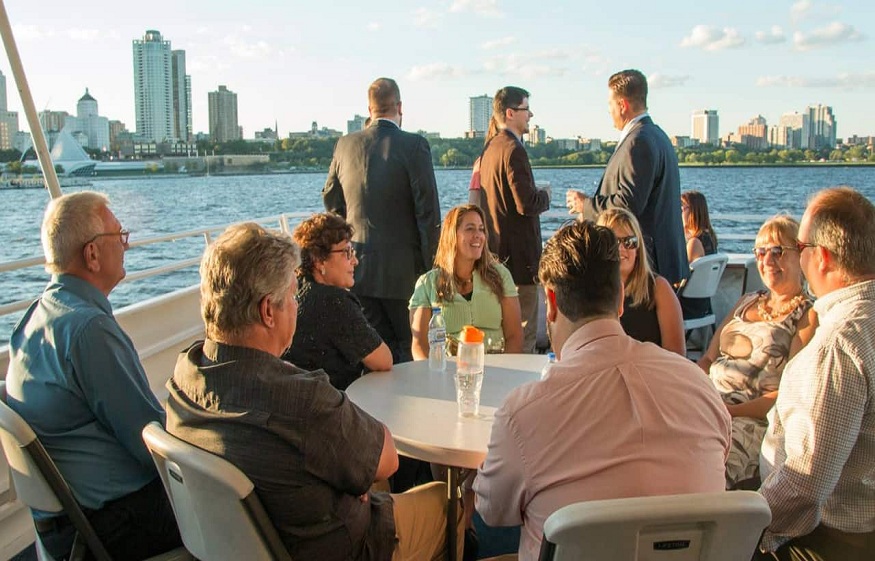Why Questing Experiences Are Redefining Corporate Events

When most people hear the words corporate event, their minds often go to conference rooms, keynote speakers, or banquet halls. While those gatherings have their place, a new wave of interactive experiences is transforming how organizations bring their teams together. Among the most exciting of these is questing, an immersive activity that combines adventure, storytelling, and teamwork in a way that few traditional events can match.
Questing, sometimes described as real-world problem solving through themed challenges, draws inspiration from escape rooms, role-playing games, and outdoor adventures. Instead of passively attending, participants are asked to collaborate, strategize, and take part in a shared journey. For businesses, this creates a rare chance to strengthen relationships and spark creativity in a setting that is both fun and productive.
How Questing Works
A quest typically begins with a story. Teams are given a mission, such as uncovering a hidden treasure, solving a mystery, or rescuing a fictional character. From there, they navigate a series of challenges designed to test logic, communication, and teamwork. These challenges might involve physical obstacles, puzzles, or creative tasks that require groups to think outside the box.
Some quests take place indoors, while others unfold across city streets or natural landscapes. A well-designed quest blends immersive storytelling with engaging tasks, pulling participants out of their everyday routines and into an adventure where success depends on collective effort. Unlike traditional icebreakers or trust falls, questing feels like an authentic experience rather than a manufactured exercise.
Why Businesses Are Turning to Questing
Corporate culture has evolved. Companies increasingly recognize that building strong teams requires more than casual networking or obligatory dinners. Employees want meaningful connections with their colleagues, and organizations want to foster collaboration that translates back to the workplace. Questing delivers on both.
The benefits are clear:
- Collaboration under pressure – Teams learn to rely on one another when time is short and challenges are complex.
- Creative problem-solving – Quests encourage out-of-the-box thinking that is highly valuable in business contexts.
- Breaking down barriers – When colleagues are immersed in a shared story, hierarchies often fade. Managers and employees work side by side.
- Memorable experiences – People rarely remember a slideshow presentation, but they do remember cracking a puzzle or completing a mission together.
These experiences translate into stronger communication, deeper trust, and renewed motivation once participants return to the office.
A Modern Twist on Team Building
Team building has a long history, but questing offers something fresh. Instead of forcing people into awkward exercises, quests provide an engaging narrative where participation feels natural. Every role is important, whether someone is skilled at solving riddles, navigating clues, or leading a group discussion. This inclusivity ensures that everyone contributes in some way.
For companies planning corporate events in Boston, questing stands out as a particularly appealing option. The city’s rich history, walkable neighborhoods, and mix of modern and historic architecture provide the perfect backdrop for immersive adventures. Teams can solve challenges in historic districts, navigate clues along the waterfront, or tackle indoor quests in creative venues. The result is an event that feels both authentic and unforgettable.
Questing and Employee Engagement
Employee engagement has become one of the most discussed topics in modern workplaces. Organizations understand that engaged employees are more productive, loyal, and innovative. Yet engagement cannot be created through policies alone. It thrives on experiences that make employees feel valued and connected. Questing does this by offering shared challenges that are both entertaining and meaningful.
When a group successfully completes a mission, the sense of accomplishment creates lasting bonds. These experiences often spark conversations long after the event, reinforcing teamwork and collaboration in everyday work situations. Questing is not just about fun, it is about creating lasting cultural shifts.
Planning a Successful Quest-Based Event
For organizations interested in incorporating questing into their corporate event strategy, thoughtful planning is key. Here are a few considerations:
- Define goals – Decide whether the event is primarily for team bonding, leadership development, or pure celebration.
- Choose the right provider – Not all questing experiences are the same. Look for companies that offer professional facilitation, customizable storylines, and options tailored to group size.
- Balance challenge levels – The best quests are difficult enough to be engaging but not so hard that teams feel frustrated.
- Incorporate reflection time – After the quest, build in a debrief session where participants can discuss lessons learned and how they apply to workplace challenges.
With these elements in place, questing can become more than entertainment. It can serve as a catalyst for real organizational growth.
Beyond Entertainment: Building Long-Term Value
Some critics view interactive corporate events as little more than a novelty. However, when done well, questing creates value that lasts. Employees return to their daily work with improved communication skills, stronger relationships, and a better sense of camaraderie. These outcomes directly support productivity and employee satisfaction.
In addition, questing can serve as a bridge between different departments. Employees who may not normally interact are placed in teams where they must collaborate to succeed. This cross-functional cooperation often carries over into future projects, breaking down silos within organizations.
A Look Toward the Future
As workplaces continue to evolve, corporate events must keep pace. Traditional conferences and meetings will always have their place, but experiential activities like questing are becoming essential for organizations that want to inspire and energize their teams. Younger generations of employees, in particular, value experiences over formalities. Questing taps into that preference by offering excitement, collaboration, and storytelling all in one package.
Cities with vibrant cultural and historical settings are particularly well-suited for these types of activities. For businesses seeking corporate events in Boston, integrating questing into the agenda creates opportunities for employees to connect with each other while also engaging with the city itself. It is a way to combine local character with corporate goals in a memorable and meaningful way.
Final Thoughts
Questing is more than a passing trend in the world of corporate events. It represents a shift toward immersive, interactive experiences that build real connections among employees. By blending storytelling, problem-solving, and teamwork, quests create environments where participants feel both challenged and rewarded. The result is stronger teams, happier employees, and organizations better equipped to thrive in today’s fast-changing business world.
For any company planning its next big event, it may be worth asking: why settle for another ordinary gathering when you could send your team on a quest?






